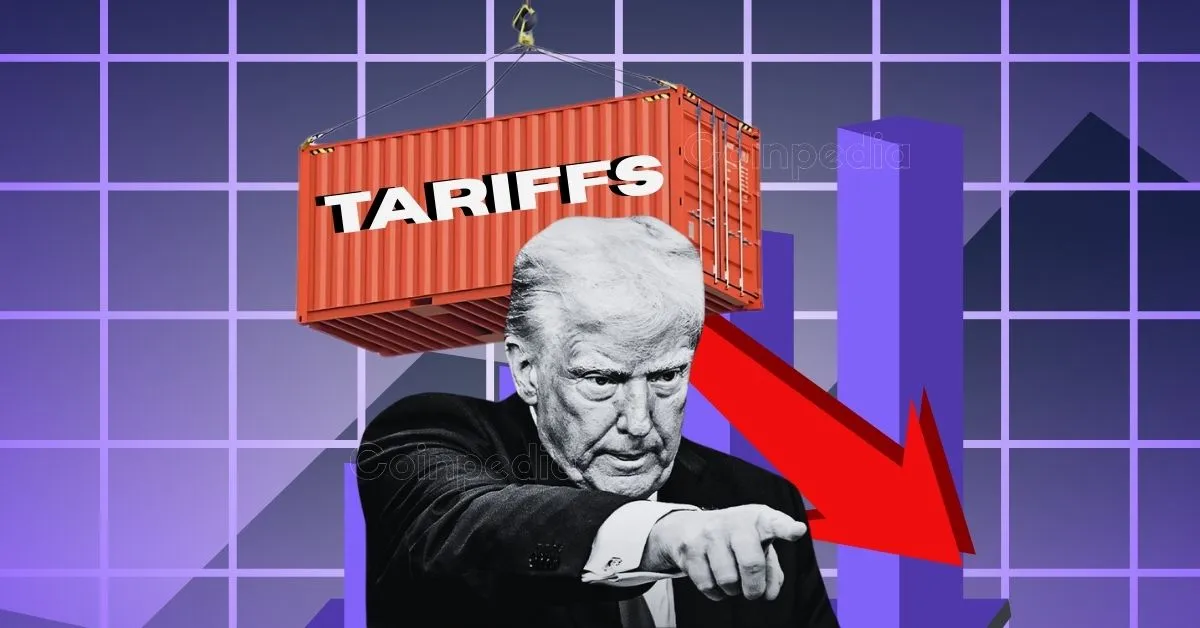
President Donald Trump’s trade policies just got a temporary boost. A federal appeals court has ruled that his broad tariffs can stay in place while legal challenges continue, setting the stage for a key decision later this summer.
It’s a major development in Trump’s aggressive economic agenda and it’s already stirring debate over presidential powers, legal boundaries, and what this means for U.S. businesses and global trade.
The ruling follows a previous decision from the Court of International Trade, which said Trump overstepped his authority by using a national emergency to impose tariffs across the board.
But now, the appeals court has paused that ruling. It acknowledged “substantial arguments” from both sides and agreed to keep the tariffs in place for now. At the same time, the court said the issue is important enough to fast-track a full review, with a decision expected by the end of summer.
The tariffs at the heart of this legal fight were enacted under the International Emergency Economic Powers Act (IEEPA). Trump used that law to introduce a 10% universal tariff, so-called reciprocal tariffs, and targeted taxes on imports from Mexico, Canada, and China.
His reasoning? These countries, according to the administration, have played a role in illegal immigration and fentanyl trafficking into the U.S.
While the courts consider whether this approach is legal, the tariffs will remain in effect.
The decision drew mixed reactions.
Plaintiff attorney Ilya Somin, a law professor at George Mason University, called the ruling “unfortunate” but said the fast-tracked timeline offers hope for a final resolution soon.
The White House welcomed the move. Spokesperson Kush Desai said the administration is lawfully using executive powers to respond to national emergencies like trade imbalances and drug smuggling.
Trump also chimed in on Truth Social, calling the court’s ruling “a great and important win for the U.S.”
Importantly, this ruling does not affect Trump’s earlier tariffs on steel, aluminum, cars, and car parts. Those were enacted under Section 232 of the Trade Expansion Act, which gives the president authority to impose tariffs on national security grounds.
That law is separate from IEEPA and remains untouched in this case.
Even with the legal win, U.S. companies are still facing major uncertainty. Trump has often changed tariff policies quickly – imposing, pausing, or adjusting them with little warning. That’s made it difficult for businesses and consumers to plan for rising import costs.
JPMorgan economists say if the IEEPA tariffs are removed, the average U.S. tariff rate would drop from 13–14% down to 5%. Still, that’s double what it was in 2024 – showing how much has changed since Trump returned to office.
Trump continues to urge companies to move production back to the U.S. to avoid tariffs. But doing that takes time, often years, and huge investments.
With a final decision expected by summer’s end, the outcome of this legal fight could shape the next phase of Trump’s trade policy and determine how global businesses move forward in the U.S. market.
A federal court allowed Trump’s tariffs to remain while legal challenges over his use of emergency powers continue.
Yes, tariffs under Section 232 of the Trade Expansion Act remain unaffected by this court ruling.
The ruling keeps uncertainty high, making it hard for businesses to plan due to sudden tariff changes.
A final ruling is expected by the end of summer 2025, following a fast-tracked appeals process.
CoinPedia has been delivering accurate and timely cryptocurrency and blockchain updates since 2017. All content is created by our expert panel of analysts and journalists, following strict Editorial Guidelines based on E-E-A-T (Experience, Expertise, Authoritativeness, Trustworthiness). Every article is fact-checked against reputable sources to ensure accuracy, transparency, and reliability. Our review policy guarantees unbiased evaluations when recommending exchanges, platforms, or tools. We strive to provide timely updates about everything crypto & blockchain, right from startups to industry majors.
All opinions and insights shared represent the author's own views on current market conditions. Please do your own research before making investment decisions. Neither the writer nor the publication assumes responsibility for your financial choices.
Sponsored content and affiliate links may appear on our site. Advertisements are marked clearly, and our editorial content remains entirely independent from our ad partners.
Macro headwinds have catalyzed selling behaviour in the last few days, making back-to-back weekend dumps…
XRP is yet again commanding attention because the 2025 bull market intensifies. Trading at $2.37,…
XRP is once again making headlines as traders anticipate a strong breakout in the months…
Binance has announced that it banned more than 600 accounts last week for using unauthorized…
Story Highlights The live price of SUI crypto is . The SUI price is expected…
Story Highlights Solana Price Today is . Solana coin price could reach a potential high…